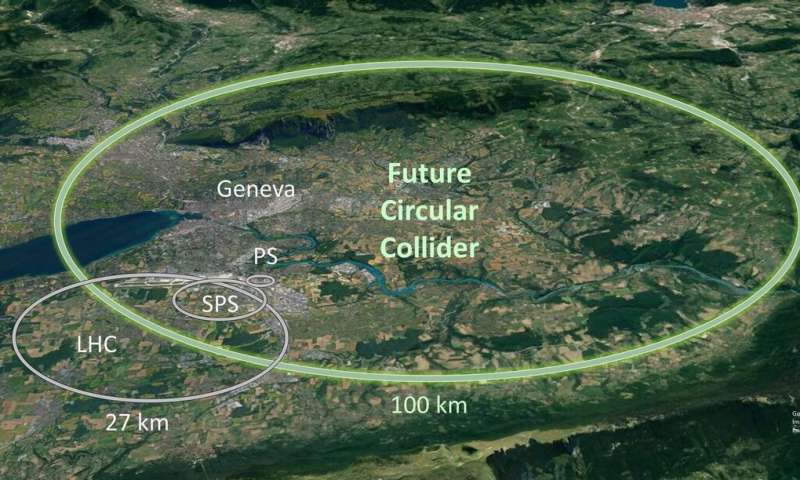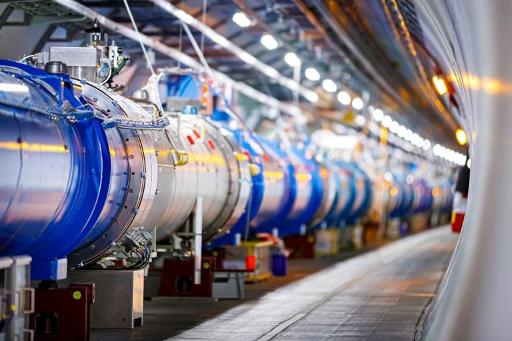The European Organization for Nuclear Research, known as CERN, of which Belgium is a founding member, currently has the world’s largest particle accelerator on which it conducts research.
The Large Hadron Collider (LHC) is 27 kilometers long, 100 metres underground, crossing the borders between Switzerland and France.
At the recent board meeting in Geneva on Wednesday, the idea of a new, larger particle accelerator was unanimously approved, phys.org reports.
At 100 kilometres, it would be almost four times longer than the current ‘Large Hadron Collider’ and form a circle around Geneva, also crosing the LHC in two places.

Credit: CERN
The installation would cost 21 billion euros and the board has already agreed to a technical and financial feasibility study for the "Future Circular Collider" (FCC).
In 2012, the LHC famously demonstrated the existence of the Higgs boson – also coined the ‘God particle’ - postulated in 1964 by Belgian physicists François Englert and Robert Brout and Scottish scientist Peter Higgs.
The searches for signs of Higgs transformations into “invisible” particles, could shine light on potential dark-matter particles.
The Brussels Times

